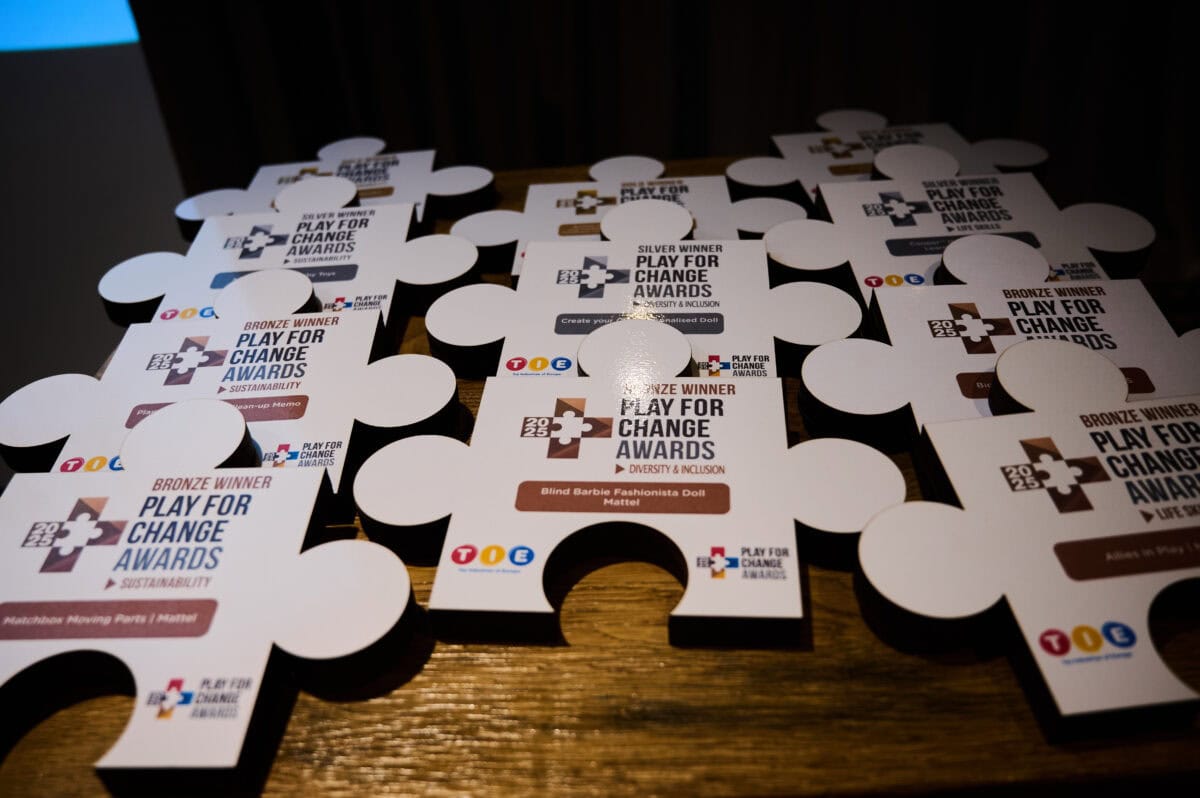Around the world today, people will be taking part in events to mark World Children’s Day. For Toy Industries of Europe, this day is an occasion to remind our stakeholders about children’s right to play – a right that should be a central part of growing up, but because of insufficient time, or a lack of safe spaces to play or indeed no permission to play, it is a right that many children around the world do not get to enjoy.
World Children’s Day was originally established in 1954, with the aim of promoting international togetherness, awareness among children worldwide, and improving children’s welfare. Over the years, the reasons for celebration on this day have grown – in 1959, it was the day that the Declaration on the Rights of the Child was adopted by the UN General Assembly and thirty years later, in 1989, it was the day when the General Assembly adopted the UN Convention on the Rights of the Child (CRC).
The UN Convention on the Rights of the Child is a human rights treaty especially for children that sets out their specific civil, political, economic, social, health and cultural rights of children. In signing up, States signal their commitment to put the best interests of children first. Amongst the rights set out in the CRC, Article 31 recognises “the right of the child to rest and leisure, to engage in play and recreational activities appropriate to the age of the child and to participate freely in cultural life and the arts”.
Whilst this Right is enshrined in international law, we see play increasingly being pushed out of children’s lives. Reports from the Lego Foundation and the American Association of Paediatricians earlier this year highlighted just how far this situation has gone. Something is definitely going wrong if doctors have to give a prescription before children are given the necessary time, space and permission to play.
Play is a vital part of children’s lives – it has also been scientifically acknowledged for its positive effect on children’s development, health and well-being. In an increasingly interconnected world, play provides the integral communication and cooperation skills required to develop into adulthood. Play also builds resilience and is especially noted for its ability to help children escape from a sometimes volatile reality. It is a tool which encourages creativity by fostering and guiding their imagination. In turn, allowing children to develop curiosity about the world around them.
Play is the lens through which children experience their world and the world of others. With adequate play, children stand the best chance of becoming healthy, happy, productive members of society.
It’s now been five years since the UN published its landmark ‘General Comment’ on a child’s right to play. This statement sent a powerful message to the governments around the world that, in their policies and programmes, they must not overlook the importance of play. They emphasised that play is essential to children’s health and well-being, to all aspects of learning, to the development of creativity and imagination – and crucially to the simple enjoyment and pleasure of being a child.
Yet, since the General Comment was made, we’ve seen disappointingly little action on the part of decision-makers to put play on the policy agenda. This doesn’t just stop children from enjoying the right to play, it stops them from reaching their full potential for themselves and in the societies they live in.
To mark World Children’s Day 2018, the European Commission made a statement highlighting the importance of investing in children to protect their rights – for the good of our societies’ future and to make sure children’s rights are respected today. This World Children’s Day, we urge that, as part of this investment, policy-makers work to make sure children around the world have time, space and permission to play. After all, an investment in play is an investment in a brighter future for children and of the societies they go on to build.
Regular play benefits children’s health and well-being and builds the foundations for adult life. More than this, its every child’s right. For more information on the importance of play and to hear about its benefits from play experts, visit www.theimportanceofplay.eu




